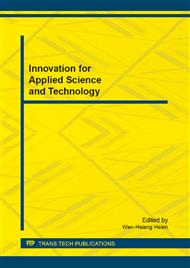p.2128
p.2137
p.2142
p.2147
p.2152
p.2157
p.2162
p.2167
p.2171
Reaching Agreement in a Dual Fallible Cluster-Based Wireless Sensor Network
Abstract:
The reliability of the distributed system has been an important topic of research. Agreement problem plays a key role in the design of reliable distributed system, which allow the correct nodes to agree on a common value, have been brought up to aid the reliable execution of tasks. However, most existing agreement protocols are no longer practical in the wireless sensor network. In this paper, agreement problem is reexamined in a cluster-based wireless sensor network (CWSN). The purposed protocol can make all correct nodes reaching agreement with two rounds of message exchange and tolerant the maximal number of allowable fallible components.
Info:
Periodical:
Pages:
2152-2156
Citation:
Online since:
January 2013
Authors:
Price:
Сopyright:
© 2013 Trans Tech Publications Ltd. All Rights Reserved
Share:
Citation:


